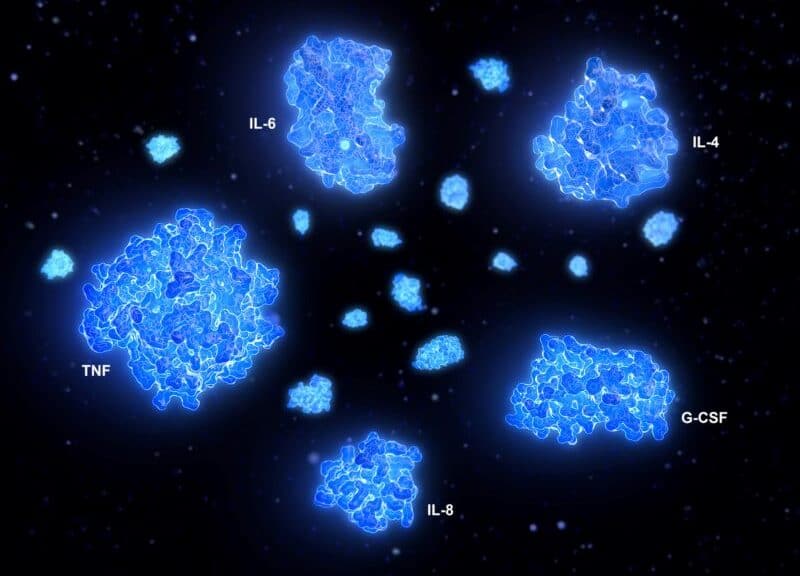New Study Finds palmitoylethanolamide (PEA) and phycocyanin (PC) combination protects lung cells from excessive inflammatory cytokines

Findings of a new study released last month (January 2022) show that palmitoylethanolamide (PEA) when used in combination with phycocyanin (PC), protects infected and inflamed epithelial cells from both the lungs and the prostate from cytotoxicity. The PEA and PC combination also greatly “abated both the production of radical oxygen species (ROS) and the transcription of several inflammatory cytokines”.
The study, conducted by researchers from the University of Torino in Italy and published in Swiss Journal MDPI, used an in vitro analysis to demonstrate the enhanced antioxidant and anti-inflammatory properties of using PC and PEA in combination to treat cell inflammation.
According to the authors of the study the combination treatment works by protecting the cells from oxidative stress and reducing the secretion of inflammatory cytokines in three ways:
- Inhibiting cyclooxygenase-2 (COX-2) enzyme, leading to decreased signalling generating ROS
- Increasing synthesis of glutathione, thereby strengthening the natural antioxidant defences of the cells
- decreasing infection-driven mitochondrial respiratory burst which generates oxidative stress.
PEA is an endogenous fatty acid amide produced naturally in the body and also found in foods such as meat, eggs, soybeans and peanuts. PEA has been shown to have antiinflammatory, antinociceptive, anticonvulsant and neuroprotective properties and is increasingly being used in the treatment of chronic pain.
Phycocyanin is a water-soluble pigment-binding protein, a member of the light-harvesting phycobiliprotein family. It is usually isolated from types of algae, particularly spirulina, and has known antioxidative and radical-scavenging properties.
The researchers say the results of the study suggest “…that the treatment with PC and PEA prepares the cell to respond more decisively to the inflammatory stimulus by increasing glutathione and, thereby, enhancing the natural antioxidant and anti-inflammatory defences of the tissue.”
While PC is a known direct COX-2 inhibitor, the same could not be said for PEA. To verify whether or not PEA had strong COX-2 inhibitory properties of its own, the researchers performed a screening test in a cell-free enzyme assay. The IC50 for PC was calculated as 0.36 µM which was expected as it was a similar result to that of two previous in vitro studies. However their calculations for PEA did cause surprise:
“Interestingly, a novel property of PEA as a direct COX-2 inhibitor was unveiled, since the molecule showed a IC50 value of 0.57 µM. Most intriguingly, the inhibitory effect was enhanced by the combination of the two compounds, leading to a IC50 value of 0.038 µM, demonstrating a potentiation of ten times compared to PC alone.”
Note from National Custom Compounding – In our purpose-built compounding laboratory our highly trained compounding pharmacists we can make up supplies of PEA and PC. For more information contact us on 1300 731 755 or [email protected].
